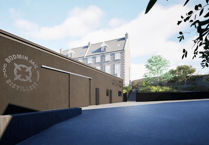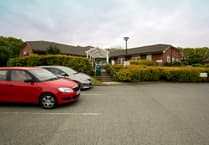By Georgia Cornish
Shortly after King Charles III ascended to the throne, he passed his exisiting titles – Prince of Wales and Duke of Cornwall – down to his elder son, the Duke of Cambridge, William. The two titles mean very different things.
The Prince of Wales has been the title given to heir apparent to the English throne since 1301, after King Edward I conquered Wales, executing their last native prince, David III, abd bestowing the title instead upon his son, the future Edward II.
In 1337, Edward III created a new dukedom – the duchy of Cornwall – for his son, yet another Edward.
This duchy includes the coastline and riverbeds around Cornwall, and significant land in Devon, most notably on Dartmoor. If you have ever walked alongside the River Dart, or around Salcombe, Kingsbridge or the Tamar, you’ve been trampling along the Duke of Cornwall’s land.
Overall, the duchy holds one-third of Dartmoor National Park, including 8,100 hectares of farming land and 20,200 hectares of common land. It is home to dwellings and businesses including four hotels, five pubs, 50 houses and a wide variety of rural workshops – as well as one prison.
Not only are inmates at Dartmoor Jail enjoying time at His Majesty’s Pleasure, they’re serving it on land owned by his son.
With £1 billion in assets, the duchy employs more than 150 people across the properties in the portfolio, mostly across seven offices between London and the Isles of Scilly, as well as roles within the duchy’s businesses.
Covid hit the duchy’s income, which fell by nearly £2 million. But it has recovered in 2021/2, generating a surplus of £23 million, despite a record amount spent on property repairs.
Throughout his time as the duke of Cornwall, King Charles III said he wanted to “nurture and improve” the estate, so it would be passed to future dukes, especially his own son and grandson, in a stronger condition than that which he inherited.





Comments
This article has no comments yet. Be the first to leave a comment.